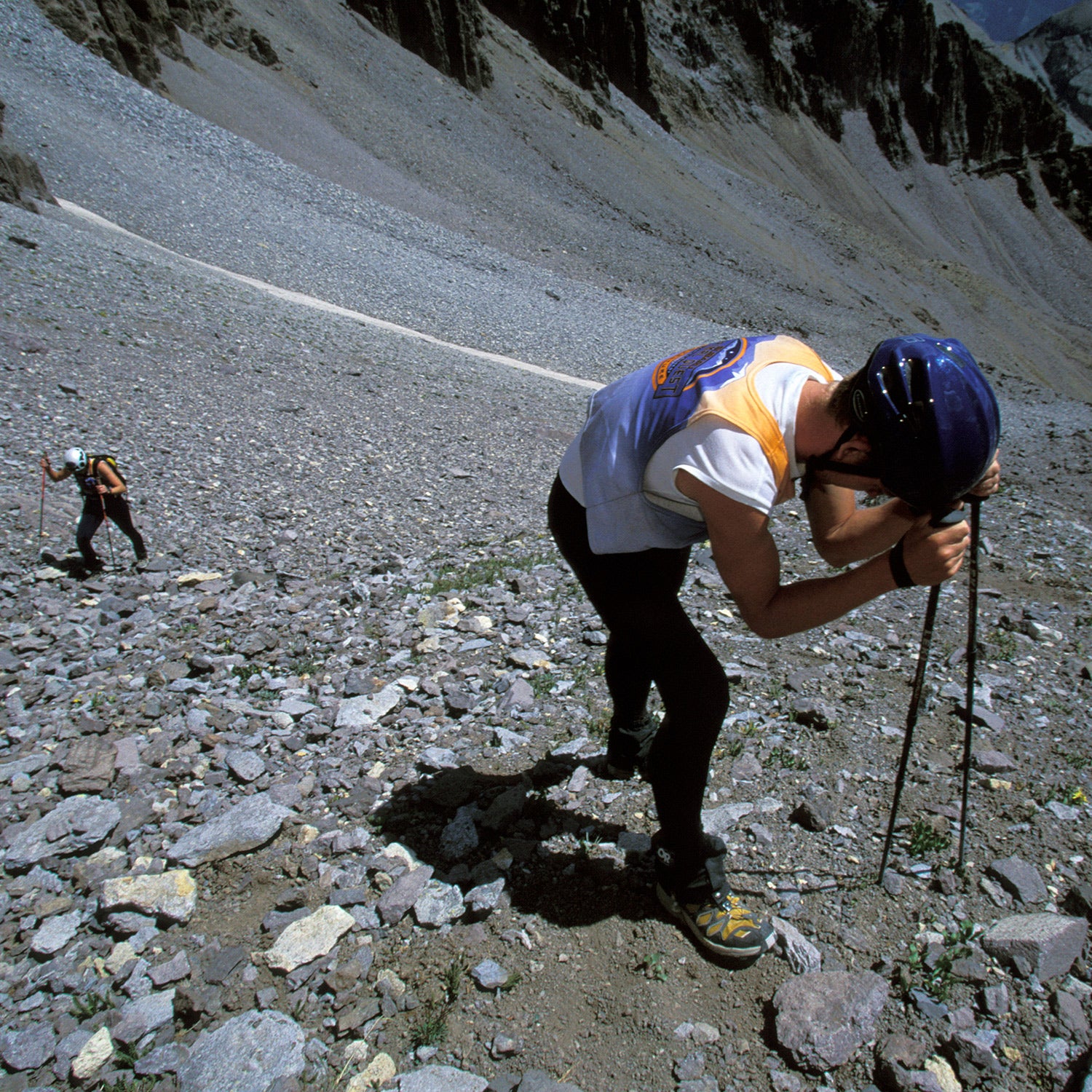It was day five that almost broke Suzy McCulloch Serpico. The 40-year-old Maryland schoolteacher was 20 miles into the marathon portion of her fifth Ironman in five days, her attempt to finish the Epic5 Challenge, but her mind and body were close to shutting down, and all she wanted to do was go back to her hotel and sleep.
“My crew knows that when I stop talking, I’m not doing well,” she says. “I was silent and walking, and it was a horrible final six miles. It was my darkest moment in a race and the most hurt I’ve ever experienced.”
But once she crossed the finish line, Serpico was filled with joy, forgetting the agony of her effort and reveling instead in what her body could do. Within a day, she says, she was already thinking of setting her next big, hairy goal.
Serpico’s experience is a classic example of type-two fun: you may be miserable in the moment, but upon completion, you reflect fondly on the experience.
I’d argue that type-two fun, by adding meaning to our lives, might contribute the most to overall happiness.
There’s no hard science behind it, but outdoor athletes and adventurers have been discussing the “fun scale” for years. Type-one fun is enjoyable from start to finish. Type-two fun is only fun in retrospect. And type-three fun consists of activities that seem fun in concept but then devolve into fear and danger—if you make it home alive, your memories of the experience are nowhere near positive.
I’d argue that type-two fun, by adding meaning to our lives, might contribute the most to overall happiness.
Like Serpico, elite ultrarunner Sarah Keyes of Saranac Lake, New York, has experienced dark moments during long endurance events, and yet she keeps signing up for them. “I call it ‘ultra amnesia,’” the 36-year-old part-time nurse says. “Within days of finishing what might have been an awful race, I’m ready to pick a new goal.”
In 2017, while running the Western States 100, Keyes experienced extreme maceration—or skin breakdown—on her feet due to snow on the course. By mile 62, she was miserable and walking, heavily considering a DNF. After a rough hour at the next aid station, Keyes’s crew cut her shoes open to allow for relief from the swelling, and she walked the final 25 miles of the race. “After I finished, I realized that I can accomplish amazing things,” she says. “I have the ability to suffer and not quit.” She competed in another ultramarathon just a few months later.
Why do athletes like Serpico and Keyes—not to mention thousands of others who tackle ultradistance events, rugged climbs, and uncomfortable treks each year—crave this type of fun?
One obvious answer: our brains release powerful neurotransmitters, endorphins and endocannabinoids, when we engage in aerobic exercise. Endocannabinoids, which improve mood and calm anxiety, play the bigger role in that post-exercise sense of happiness. Endorphins cut down on the pain you feel while exercising but do not cross the blood-brain barrier to contribute to a good mood after activity.
Beyond the neurotransmitters, there may be something more existential going on. Keyes says that testing her body’s limits is part of what she finds satisfying in her pursuits. “I don’t know what bottom is for me in an event, so maybe I’m searching for that line,” she hypothesizes. “I gain confidence in knowing that I can push through my limits.”
This correlates with the conclusions of a small 2017 psychological study published in the Journal of Consumer Research that investigated the concept of “selling pain” in the form of extreme athletic events like Tough Mudder races. Researchers conducted extensive interviews with 26 people who had paid to participate in Tough Mudders, and found a theme: participants were using the pain of the event to disassociate from the tedium of their white-collar lives and rediscover their bodies. The researchers wrote that “painful experiences help us create the story of a fulfilled life spent exploring the limits of the body.”
When athletes like Serpico and Keyes are in the middle of grueling athletic events, they’re also experiencing what researchers have defined as harmonious passion: being absorbed in an activity that you chose to do because you love how it makes you feel. People who have harmonious passion in their lives—as opposed to obsessive passion, which is driven by external rewards and other people’s perceptions—are happier.
Any kind of hard-won pleasure in the outdoors, whether it’s completing an Ironman or hiking up a steep mountain trail for a summit view, can fit in this category.
Roseann Capanna-Hodge, a New York–based psychologist, says, “We all love the feeling of accomplishment when we meet our goals. In the case of big physical challenges, we feel pride, excitement, and love for the thrill of competition.”
Tough physical challenges can also spark increased feelings of gratitude—for the capabilities of your body, your health, nature, and the people with whom you participate—which is also strongly linked to happiness.
“Doing these activities makes me appreciate just how lucky I am,” Serpico says.
This summer, Serpico headed to the town of Lake Placid, New York, to undertake her own personal epic swim in nearby Mirror Lake, completing 26.2 miles in 13.5 hours. “I was swimming to the point where I hated it,” she says. “It was physical and mental suffering, and I barely slept that night because my shoulders hurt so much. But two days later, I said to my husband, ‘Let’s do this again.’”

